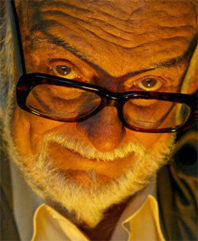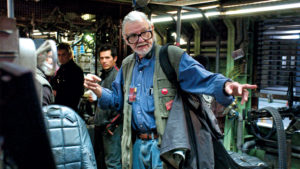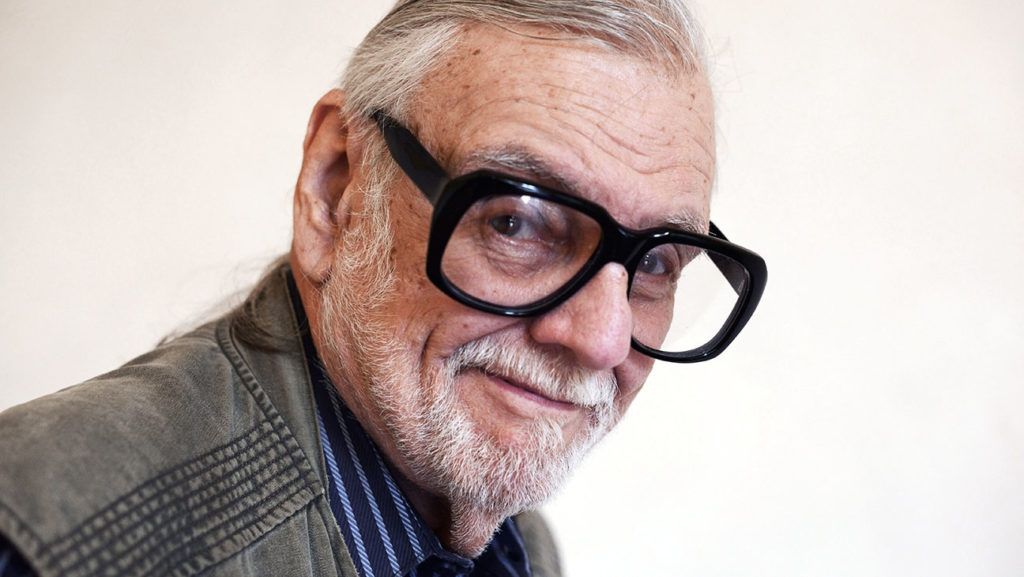
The recent passing of George A. Romero hit like a stake to the heart for horror fans. Succumbing to his battle with lung cancer in his sleep, he was more than simply the father of the zombie genre. To his fans he was like family. He was a voice for those who used horror movies to make sense of the complexities of the world around them.
While I would label myself a casual horror fan at best, I was never one for the gory side of its numerous subgenres; the brilliance of Romero’s filmmaking abilities did not go unnoticed. It was through his films that I found both an affirmation that there was a place for black people in horror, and a greater appreciation for the social impact of horror movies.
The mastermind of the zombie genre, my initial education into the films of Romero actually came through his non-Living Dead films. Shocking as it may be, my first Romero film was his 1993 Stephen King adaptation The Dark Half. The film told the story of Thad Beaumont (Timothy Hutton), an author whose highbrow literary prose fails to sell as well as the suspense-thrillers he writes under the pen name “George Stark.” Things take a dark turn for Beaumont when his alter ego Stark (also played by Hutton) comes to life and starts causing havoc.
Though considered a lesser work by Romero and King fans alike, and bombing at the box office, it was my unwavering enjoyment of The Dark Half that triggered my curiosity to delve further into Romero’s cannon of films.
Working somewhat backwards, it was not until I was in my early twenties that I found myself in front of his iconic debut film Night of the Living Dead. Sure I had seen countless zombie films from a generation of filmmakers he inadvertently inspired, but they all proved to be a pale imitation of what Romero achieved in that film. He breathed life into his tale of the dead, or undead, that I had not seen before.
As a black male, that film resonated with me deeply. It was one of the rare times where I saw a black person not only did not die early on, but was in fact the hero of a horror film! There was something invigorating about seeing Ben risk his life to save Barbara (Judith O’Dea), a woman he had essentially just met, and the others trapped with him in the farmhouse. He is consistently the smartest person in the film, though his ideas are routinely ignored, or shot down, by those who feel their fair complexion give them authority over others.
The true danger was not in the jaws of the undead, but in the bigotry of the living. All of this was the perfect recipe for an ending that is chilling and, sadly, still feels all too timely 49 years later.
Romero may have repeatedly downplayed the casting of Duane Jones in the lead role, but the significance of the film being made during the Civil Rights Movement era, and released mere months after the assassination of Martin Luther King Jr., cannot be ignored. Whether he was merely exploiting the casting to generate controversy or intentionally lacing his film with biting social commentary, Romero showed that low budget horror movies had plenty to say beneath its gory exterior.
Romero’s ability to hold up a mirror and reflect the evils of society through his films was, in my opinion, his greatest strength as a filmmaker. Whether it was the dangers of consumerism in Dawn of the Dead or dissecting the class struggle in Land of the Dead, his films always had something interesting to say. This is why, unlike other directors, even his lesser works, take the latter films in the dead trilogy or Monkey Shines for example, are still watchable on a certain level.
Regardless of whether one is a hardcore horror fan or a casual observer like myself, it is impossible not to see the legacy that he has left behind. Without Romero there would be no The Walking Dead or Fear the Walking Dead dominating the ratings on television. The cinematic zombie genre, as oversaturated as it might be now, would not exist without him. We would not experience the joys of Edgar Wright’s Shaun of the Dead, Danny Boyle’s 28 Days Later, Yeon Sang-ho’s Train to Busan, Bruce McDonald’s Pontypool, Peter Jackson’s Dead Alive, Ruben Fleischer’s Zombieland, Marc Forster’s World War Z and the countless other films that have taken Romero’s playbook in new and interesting directions.
Despite how one has encountered Romero’s works, his influence is immersed so deep into popular culture that it is inescapable. Though many have tried to duplicate his style, George A. Romero was truly one of a kind.


